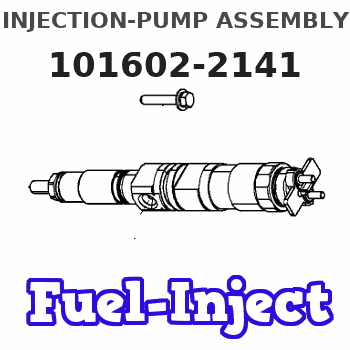Information injection-pump assembly
ZEXEL
101602-2141
1016022141
HINO
220201961A
220201961a

Rating:
Service parts 101602-2141 INJECTION-PUMP ASSEMBLY:
1.
_
5.
AUTOM. ADVANCE MECHANIS
6.
COUPLING PLATE
8.
_
9.
_
11.
Nozzle and Holder
23600-1593A
12.
Open Pre:MPa(Kqf/cm2)
21.6{220}
15.
NOZZLE SET
Cross reference number
Zexel num
Bosch num
Firm num
Name
Information:
U.S. EPA regulations require the use of Ultra Low Sulfur Diesel fuel (ULSD) , ≤0.0015 percent (≤15 ppm (mg/kg)) sulfur, for nonroad and stationary Tier 4 EPA certified engines using fuel sensitive technologies such as SCR systems and particulate filters. Fuels other than ULSD can cause damage in those engines and should not be used.Consult the U.S. EPA for fuel sulfur regulations and for the ULSD point of sales required dates for various nonroad applications.European sulfur free fuel ≤0.0010 percent (≤10ppm (mg/kg) sulfur) fuel is required by regulation for use in engines certified to EU nonroad Stage IIIB and newer standards and that are equipped with exhaust aftertreatment systems.Certain governments/localities and/or applications MAY require the use of ULSD fuel. Consult federal, state, and local authorities for guidance on fuel requirements for your area.Typical aftertreatment systems include Diesel Particulate Filters (DPF), Diesel Oxidation Catalysts (DOC), Selective Catalytic Reduction (SCR) and/or Lean NOx Traps (LNT). Other systems may apply.Low sulfur diesel (LSD) fuel (≤500 ppm (mg/kg) sulfur) is strongly recommended for use in engines that are pre-Tier 4 models while diesel fuel with >500 ppm sulfur is acceptable for use in areas of the world where allowed by law. Pre-Tier 4 engines that are equipped with a Diesel Oxidation Catalyst (DOC) require the use of LSD fuel or ULSD fuel.ULSD fuel or sulfur-free diesel fuel are acceptable in all engines regardless of the engine U.S. EPA Tier or EU Stage requirements.Use appropriate lubricating oils that are compatible with the engine certification and aftertreatment system and with the fuel sulfur levels. Refer to the “Diesel Fuel Sulfur Impacts” article of this “Fuels Specifications” section and to the “Lubricants Specifications” section of this Special Publication.
The two basic types of distillate diesel fuel are No. 2 diesel fuel and No. 1 diesel fuel. No. 2 diesel fuel is the most commonly available summer grade diesel fuel. No. 1 diesel fuel is a winter grade diesel fuel. During the winter months fuel suppliers will typically blend No. 1 and No. 2 diesel fuel in various percentages. Blending allows the fuel to meet the historical low ambient temperature cold-flow needs for a given area or region. No. 2 diesel fuel is a heavier diesel fuel than No. 1 diesel fuel. In cold weather, heavier fuels can cause problems with fuel filters, fuel lines, fuel tanks, and fuel storage. Heavier diesel fuels such as No. 2 diesel fuel can be used in diesel engines that operate in cold temperatures with an appropriate amount of a proven pour point depressant additive. For more information on fuels which include blends of No. 1 and No. 2 diesel fuel, consult your fuel supplier.When you use No. 2 diesel fuel or other heavier fuels, some of the fuel characteristics may interfere with successful cold-weather operation. Additional information about the characteristics of diesel fuel is available. This information contains a discussion on the modification to the characteristics of diesel fuel. There are several possible methods that can be used to compensate